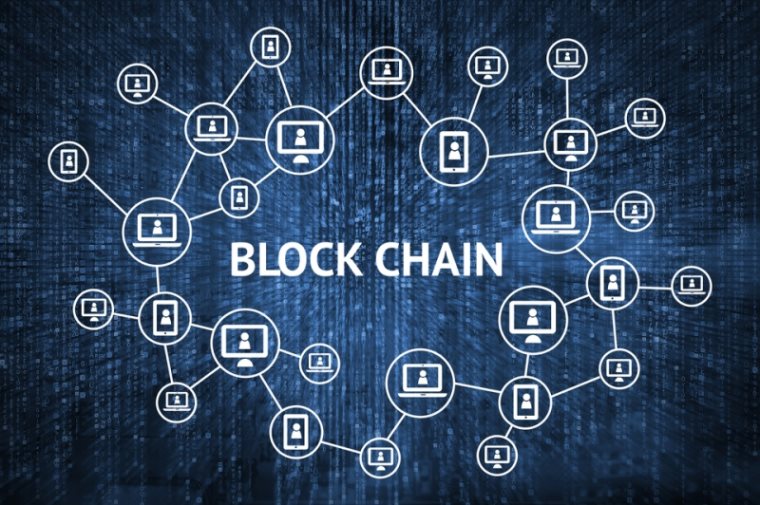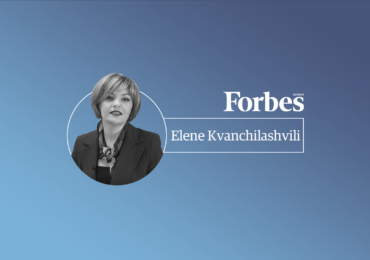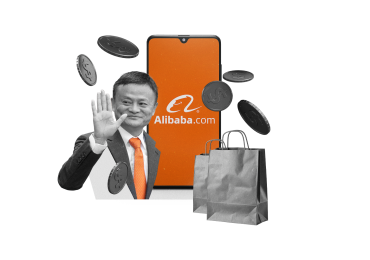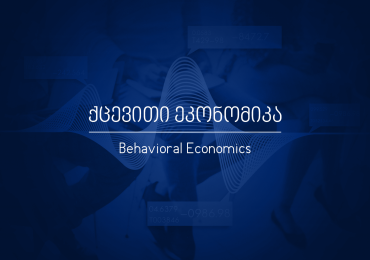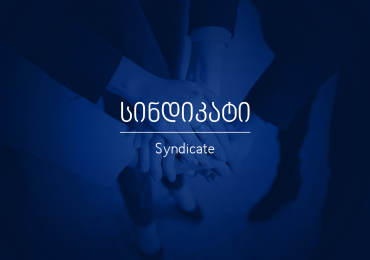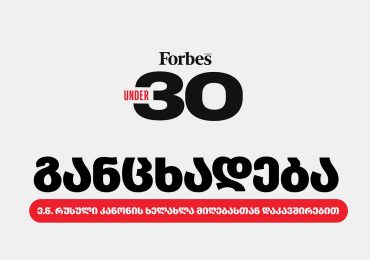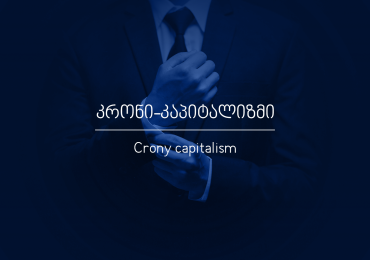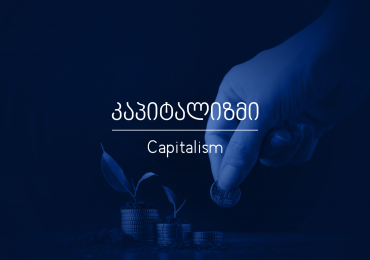By 2025, 10% of the world’s entire GDP will be stored in a blockchain. Many have already become accustomed to it, and are happy to exchange information through the use of decentralized online platforms. This is the internet. However, whenever it comes to purchasing something, we don’t trust the internet. It’s necessary for us to use bank accounts and credit cards. But blockchain technology has the potential to eliminate the “middleman.”
When I went to the United Statesto study in 1996, it was terribly expensive for my parents to contact me directly: a one-minute telephone call to the United States from Georgia cost more than breakfast at a high-class hotel. The post? Well they would either deliver the letter or they wouldn’t. You never could know. In any case, receiving something by mail took at least a few months, which wasn’t much of a relief for a 15-year-old girl on the other side of the ocean.
Years later I ended up in America again – a few times actually. However, this time communication wasn’t as hard.
Why?
Because of the internet. Just turn on the webcam and talk for as long as you want. It’s free andit’s almost as if you haven’t even gone anywhere.
It’s indisputable. The internet has made communication cheaper, more reliable and more effective. However, over time,the novelty wore off. It lost its magic. As with everything else, mankind got used to this achievement and moved on. And then – mankind developed new tastes.
Many leading publications – among them, Forbes – call blockchains the Internet of value’.
Anyone can upload information to the internet, and anyone can access it. Transferring valuables with a blockchain can be done through a blockchain system. However, in order to have access, you must have your own crypto-key. This key will only open blocks that belong to you. By giving this key to someone else, you are effectively giving awayaccess to any valuables, which you might have stored in that specific section of the blockchain.
Why are blockchains the next stage of development? Because it satisfies requirements, for which the internet wasn’t created –it establishes identity, trust and safety: no one will be able to make changes to a blockchain without the correct key. Even if such changes are attempted, they won’t be saved.
“And that’s not all. Globally, there are a lot of datacenters and infrastructure in place that ensures the security of the Bitcoin Blockchain, and any blockchain can tap into this security. These things make cheating the system practically impossible. The computing power that protects the Bitcoin Blockchain is several thousand times more powerful than Top-500 of the world’s supercomputers combined,” explains The Bitfury Group CEO Valery Vavilov, who, during his short visit to Georgia, agreed to an exclusive interview with Forbes.
In theory, there is a risk– the same risk you would have with money or gold – that the keycan be stolen. However, storing a few lines of computer code isn’t very expensive. The same can’t be said about a bank vault, for which the odds of being broken do theoretically exist.
It turns out that the bank’s main functions – checking identities to prevent fraud and illegitimate transactions from occurring – are performed more quickly and more precisely by a blockchain. “However, we shouldn’t consider a blockchain as a competitor to banks. Can we say that the internet competes with banks? No.The internet allowed banks the ability to increase their effectiveness. Similarly, a blockchain will allow banks to simplify bureaucracy and avoid extra paperwork,” says Vavilov.
A blockchain isn’t only useful in the financial sector however. Thanks to the high level of security and protection we spoke of earlier, a blockchain is the most incorruptible digital platform available that can account for practically everything. It can be digitized to contain documents like birth, death, and marriage certificates, ownership rights documents, educational diplomas, medical histories, contracts and even electoral votes.
“In reality, this is one of the best examples of how we can use a blockchain. If an election falls on a work day, a lot of people might not have time to vote. A blockchain system, which requires your cell phone and personal ID numbers, takes care of this problem completely. In the future, you’ll wake up in the morning, grab your smartphone and say: the election is today, who am I voting for? Then you’ll simply select your candidate, tap your screen and that’s it – your choice is made! Your vote is in the blockchain. No one will be able to change it, and votes will be tallied in real-time. ”That’s how Vavilov sees another future function for blockchains.
In America, the Washington-based startup InnoVote is in the process of creating a blockchain platform for voting. The goal is to make democracy’s most important procedure, easier, safer and more reliable. If the company succeeds, and if the system becomes officially recognized, elections may no longer be the way we’ve become accustomed to. According to the National Democratic Institute’s (NDI) latest study, even Georgia understands that digitizing the process might not be such a bad idea, as 55 percent of respondents said they’d be willing to vote online.
However, whether we vote using a blockchain or not is irrelevant at this point. The internetization of the country has to be completed first. That being said, Georgia was one of the first to embrace the future. In Georgia, real estate and business registration information will soon be protected by the blockchain’s global system – setting a precedent for the world. In fact, Georgia’s Public Registry Office and the Bitfury Group signed a memorandum in February. This also happened to be the reason for Vavilov’s visit to Georgia.
According to Vavilov, we need to change our formulation. It’s not a question of whether we will use blockchain technology more widely, the question is when will we use blockchains more widely? It’s really an inevitable progression, just like the internet was when it was first introduced.
This serves to remind us that situations do exist where it isn’t necessary to pick a side. Especially when one side has all of the facts and arguments already.
დატოვე კომენტარი
